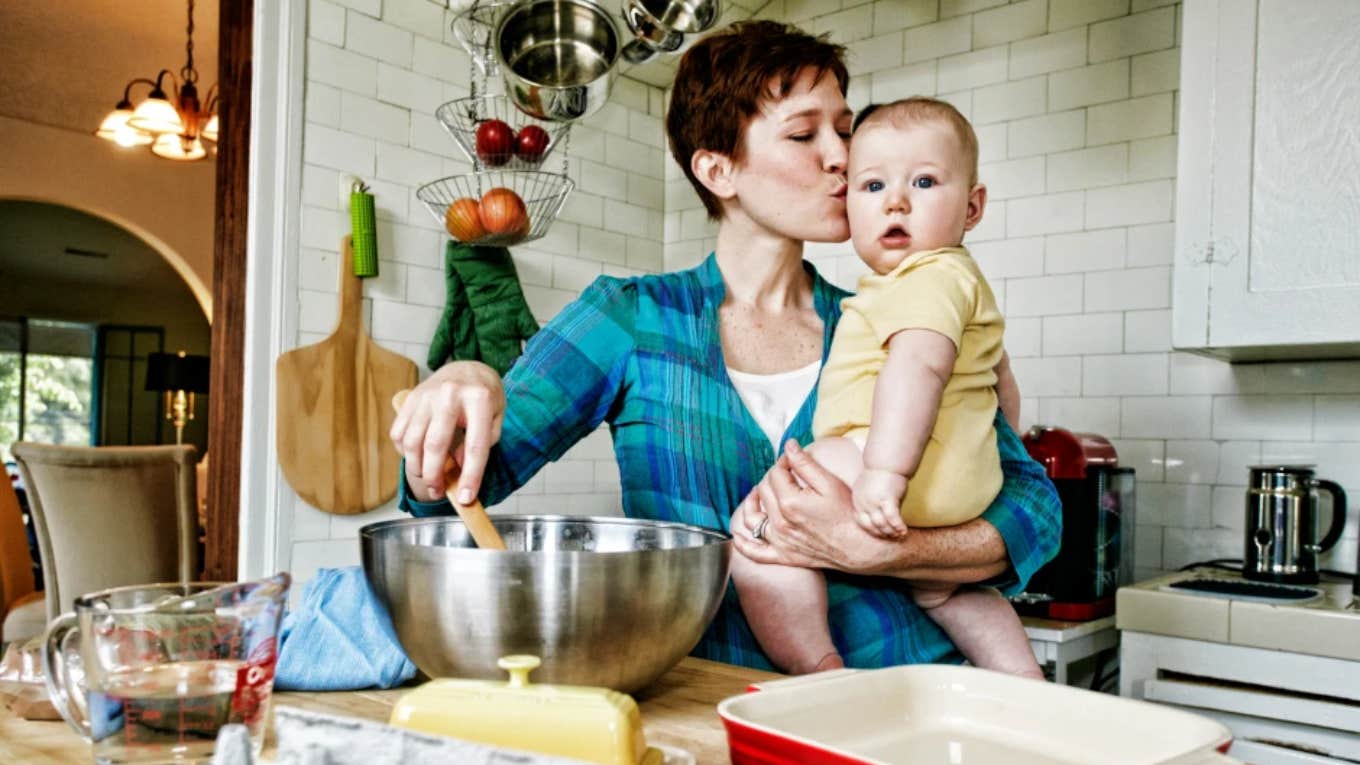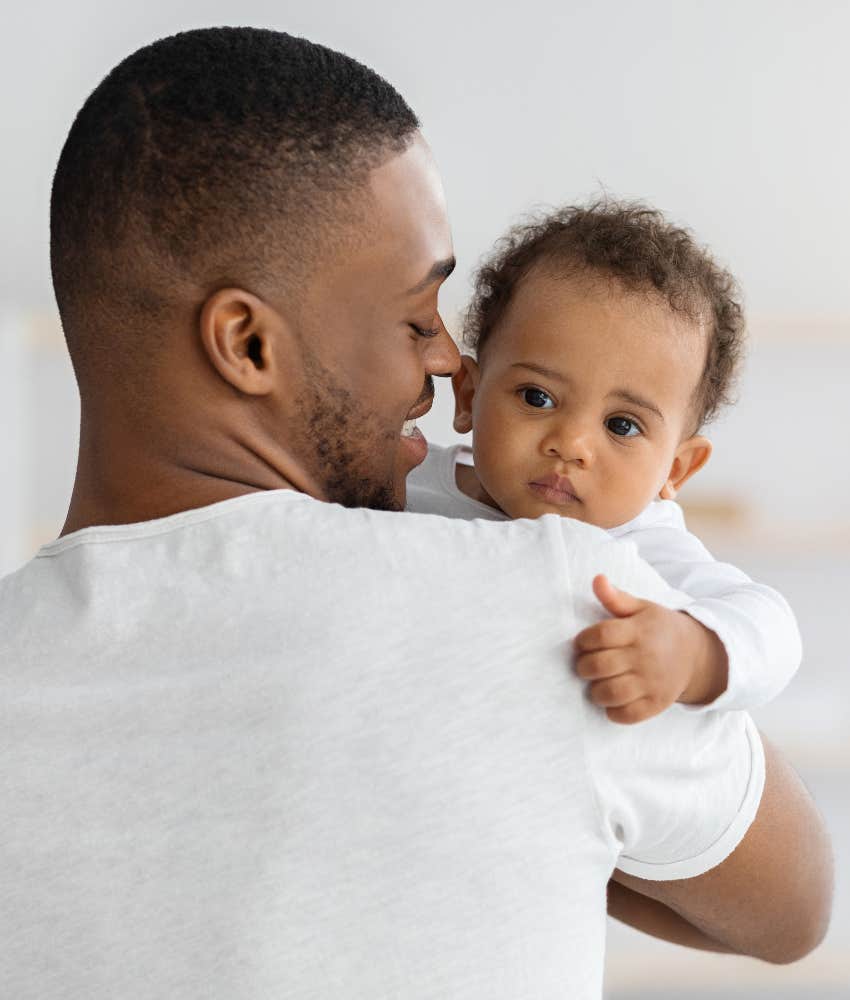The Weird Science Behind Why You Want To 'Eat' A Cute Baby Or Puppy
THOSE CHEEKS.
 Getty
Getty Have you ever found yourself wanting to take a tiny bite out of an adorable baby's face because you're just so overwhelmed by their cuteness, while simultaneously crying tears of joy while holding them in your arms? Research has found that there's a psychological reason for wanting to do those two contrasting things at the same time, which is called dimorphous expressions or "cute aggression."
This is no different from that overwhelming feeling of wanting to "eat" a puppy and smother it with hugs when it turns its adorable head in just the right way to melt your heart. You have literally no intent to actually cause the object of your cute aggression harm, and yet there's that undeniable impulse to nibble on those chunky baby legs when your niece or nephew comes to visit.
Feeling like you want to 'eat' a cute baby actually helps maintain emotional balance.
The 2015 study, published in Psychological Science, stated, "Extremely positive experiences, and positive appraisals thereof, produce intense positive emotions that often generate both positive expressions (e.g., smiles) and expressions normatively reserved for negative emotions (e.g., tears). We developed a definition of these dimorphous expressions and tested the proposal that their function is to regulate emotions."
 NDAB Creativity | Shutterstock
NDAB Creativity | Shutterstock
There are many examples of how one can react to a positive experience with a negative emotion. For instance, the emotional expressions people show in response to adorable babies. At the same time that adults are baby talking to babies and holding them, they also can't resist pinching their cheeks, squeezing them tight, and wanting to gnaw at them.
Dimorphous expressions, two different expressions that have the same origin, aren't situation specific; rather, they seem to emerge in response to a variety of good feelings.
'Cute aggression' is one of the ways we regulate our emotions through expression.
"People may be restoring emotional equilibrium with these expressions," said Oriana Aragon, lead researcher of the study. "They seem to take place when people are overwhelmed with strong positive emotions, and people who do this seem to recover better from those strong emotions."
As part of the study, the researchers asked subjects to look at and evaluate photos of different babies, some of whom appeared more "babyish" (bigger eyes) than others. Participants demonstrated higher expressions of care for the more infantile babies, and said they wanted to take care of them and protect them. But they also reported high expressions of aggression in response to these babies, saying they wanted to "pinch their cheeks" and "eat them up."
What's interesting, however, is that the participants experiencing the "cute aggression" were able to get back to their baseline emotions more quickly than those who didn't have the urge to bite their adorableness. That's where the regulation comes into play. But these contradictory emotions don't just arise in moments of overwhelming cuteness. They happen when we feel an overwhelming rush of positive emotions all at once.
The feeling of being overwhelmed by positive emotions evoked the aggressive responses.
People who showed higher expressions of aggression while looking at the babies tended to show a bigger drop-off in positive emotion five minutes after seeing the images, suggesting that the negative emotions helped the participants to neutralize their intense positive emotions, bringing them back to emotional equilibrium.
 Prostock-studio | Shutterstock
Prostock-studio | Shutterstock
"These insights advance our understanding of how people express and control their emotions, which is importantly related to mental and physical health, the quality of relationships with others, and even how well people work together," Aragon said.
Not everyone gets this cute aggression, so if you have it, count yourself lucky. Aragon told the BBC that only 50 to 60% of people actually have these emotions, which she said made you also more likely to cry at a wedding! So, the next time you want to squeeze that baby's face, or pick up a kitten and put it in your pocket, know that you aren't some crazed baby-squeezer/pet stealer. You're just someone who's getting their emotional balance back.
Christine Schoenwald is a writer, performer, and frequent contributor to YourTango. She's had articles featured in The Los Angeles Times, Salon, Bustle, Medium, Huffington Post, Business Insider, and Woman's Day, among many others.

